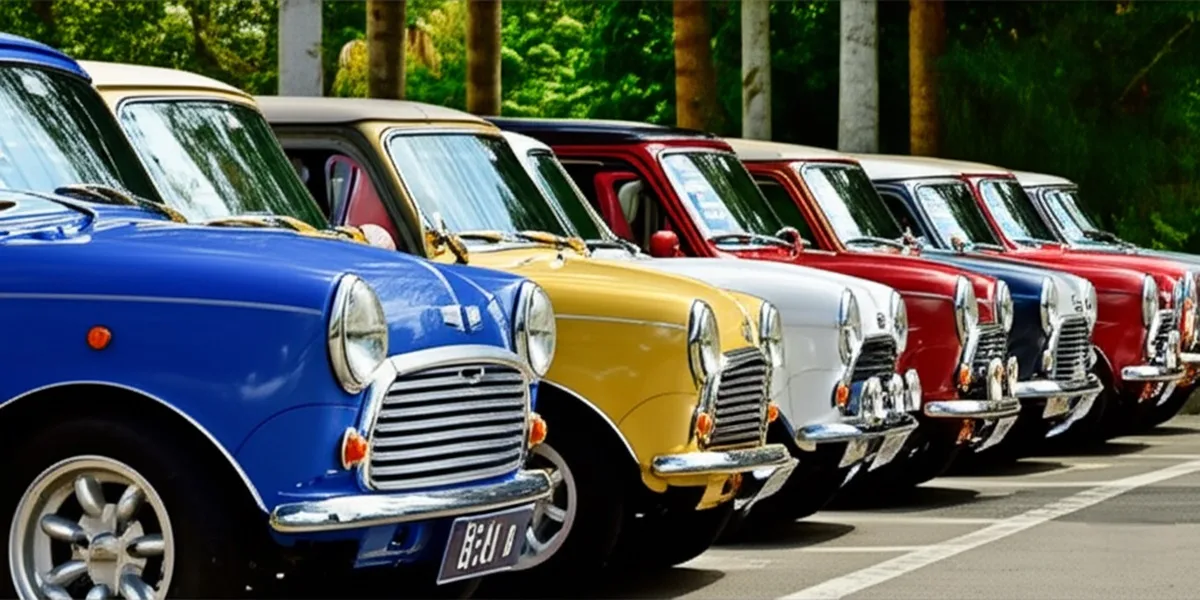In a move to make it easier for classic car owners and driving enthusiasts, the DVLA (Driver and Vehicle Licensing Agency) has announced updated registration policies for vehicles that are repaired, restored, or modified. These new policies, which come into effect on Tuesday, 26 August 2025, will simplify the process of notifying the DVLA about modifications and restoration work.
This change is great news for owners of vintage and classic vehicles, as it helps preserve their cars while ensuring they remain roadworthy and legally registered.
Key Updates to Vehicle Registration Policies
The DVLA’s updated policies aim to modernize the way vehicles are registered after restoration or modification. They also address concerns raised by the motoring community, including classic car owners and motoring clubs. Here’s a breakdown of the key changes:
1. No Need to Report Like-for-Like Repairs
- What’s New? Like-for-like repairs and restorations no longer need to be reported to the DVLA.
- When Does It Apply? This rule applies when the vehicle’s appearance remains the same as when it was originally manufactured.
- Why It Matters: Classic car owners no longer need to notify the DVLA for standard repairs or restoration that don’t alter the car’s look or identity.
2. Structural Modifications Can Keep Original VIN
- What’s New? Vehicles that undergo significant structural modifications will be able to retain their original Vehicle Identification Number (VIN) and registration number.
- When Does It Apply? The registered keeper must inform the DVLA about any changes made, but the original identity of the vehicle will remain intact.
- Why It Matters: Enthusiasts who modify their cars extensively can still preserve the unique identity of the vehicle, even after major modifications.
3. Electric Vehicle (EV) Conversions Can Keep Original Identity
- What’s New? Vehicles converted to electric will be able to retain their original registration and VIN.
- When Does It Apply? The registered keeper must notify the DVLA of the conversion, but the car’s original identity will stay the same.
- Why It Matters: This is especially beneficial for those converting classic cars to electric power, a growing trend that supports sustainability and modern tech while keeping the car’s classic feel.
Why These Changes Matter to Classic Car Owners
Classic car owners often face challenges in maintaining and legally registering their vehicles. Whether it’s restoring a vintage car to its former glory or modifying it with new technology, ensuring that all changes are properly documented is essential. The DVLA’s updated policies aim to:
- Simplify the Process: By removing the need to notify DVLA for basic repairs or restoration, owners can focus on their passion without getting bogged down by paperwork.
- Celebrate Heritage: These changes ensure that owners can preserve the rich history of classic vehicles while embracing modern restoration and modification methods.
- Encourage Innovation: The updated rules also support the conversion of classic cars to electric, helping to future-proof these vehicles while reducing emissions.
How the Changes Were Developed
The updated registration policies come after a call for evidence from the DVLA, which received over 1,350 responses from classic car enthusiasts, motoring clubs, and the historic vehicle sector. Based on this feedback, the DVLA decided to replace its old policies with clearer and more practical guidelines for modern restorations and modifications.
Statement from the Minister for the Future of Roads
Lilian Greenwood, the Minister for the Future of Roads, expressed support for the changes, saying:
“We know how much love, time and effort goes into keeping classic cars – and we’re right behind the community. These changes are about cutting red tape and making life easier for enthusiasts, whether you’re restoring a vintage gem or converting it to electric. It’s all about celebrating the UK’s amazing motoring heritage and helping the industry thrive well into the future.”
DVLA’s Commitment to the Community
Tim Moss, the Chief Executive of the DVLA, highlighted the agency’s commitment to supporting the classic car community. He said:
“These updated policies support historic vehicle keepers, and the wider industry, with clearer registration processes that reflect modern restoration and modification practices, helping safeguard the UK’s rich and wonderful automotive history.”
Conclusion
The DVLA’s updated policies will have a significant positive impact on classic car owners and enthusiasts in the UK. The changes make it easier to restore, modify, and even convert classic vehicles to electric, while maintaining their original registration and identity. These updates not only simplify the process but also help preserve the rich heritage of the UK’s automotive history for future generations. If you’re a classic car owner, these updates provide a clear and efficient path to keeping your vehicle on the road for years to come.
Remember: These changes take effect on Tuesday, 26 August 2025, so make sure to stay informed and updated on the new registration guidelines to keep your classic car legal and roadworthy.




